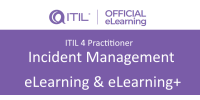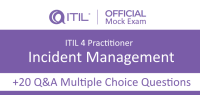My first exposure to project management – while studying engineering at university – was overwhelming.
In my penultimate year on the course, we had to create and work in five, small teams for engineering design, transition, testing and production. I volunteered to be project manager for the entire project leading a team of 20 students.
At the time, I experienced the pressure of a leadership role: getting really stressed as I wanted to make everyone happy – in other words, a “people pleaser” rather than being strict on decisions considering what was right for the team and project.
If only I’d known then what I know now, from my work experience and later studying courses like PRINCE2®.
Project management – a visible lack of skills
After starting my post-university career in technical engineering, I moved into different roles and became manager for delivery of client work – making sure we met timelines and managing team workloads.
No matter what role I was in, project management was an important part of it. However, in numerous organizations, I saw few people using project management skills (maybe only 60% of the time).
Unfortunately, this can lead to mismanagement and people not really knowing what they’re doing.
Today, working in ICT advisory and project delivery in IT and telecommunications, I know the challenges organizations face: trying to get work done with the highest quality but also at minimal cost and sometimes with a lack of focus on the people element. This is even more challenging when companies want to offshore their operations, reducing their overall control and a lack of team bonding.
However, project management skills can help minimise these pressures. When the tasks are delegated well, teams are updated regularly and most importantly all team members are treated with respect at all times.
PRINCE2 – from accidental to intentional project manager
Though I wasn’t originally planning to be a project manager I was keen to study the PRINCE2 method. A lot of people, like me, had been managing projects already but wanted to do it properly.
The guidance is useful to map out the steps we’re actually doing already, but sometimes miss a step and need to fill in the gaps. And working with colleagues who have done PRINCE2 also makes communication so much easier – we’re all speaking the same project management language.
From initiating to closing a project, following PRINCE2 principles, one can easily execute the project, maintaining the timeline and delivery targets.
Building a career and better ways of working
I think PRINCE2 adds a lot of value on your resume, and it reflects well on one’s management skills. This certification is recognized worldwide and immediately one can be counted as a globally-accepted professional with knowledge of project management.
For me today, it means being both clear and firm with the decisions I take, explaining why and building trust in my ability, which develops people’s respect.
Going back to my project management experience at university, I would have been a much better leader with a project management method. So, I’d recommend any current students to take PRINCE2, which will add to their ability in leadership positions.
News by Ajanta Moitra – Business Development and Employee Engagement Manager







